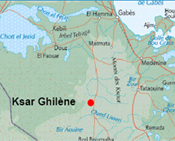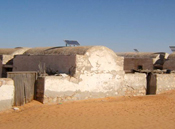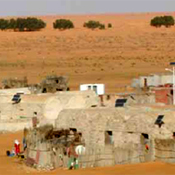HYRESS



Description
Hybrid Renewable Energy Systems for the Supply of Services in Rural Settlements of Mediterranean Partner Countries (HYRESS)
Financed by
The 6th Framework Programme (FP) of the European Comission, International co-operation (INCO) inside the specific measures in support of international cooperation involving Mediterranean countries (MPC)
Coordinated by
Agricultural University of Athens (AUA), Greece
Participants
- Alexandria University (AU), Egypt
- Instituto Tecnológico y de Energías Renovables (ITER), Spain
- Université Cadi Ayyad Marrakech (FSSM), Morocco
- Institut für Solare Energieversorgungstechnik (ISET), Germany
- Agence Nationale pour la Maîtrise de l´Énergie (ANME), Tunisia
- WIP, Germany
- Clean Power Ltd Partnership (CP), Greece
Abstract
The strategic objective of the project is to remove knowledge barriers concerning the installation of hybrid systems based on renewable energy. An installation of Renewable energies based on "mini-networks" will be carried out in remote populations of partner countries around the Mediterranean (MPC) as a demonstration. The hybrid systems are formed by photovoltaic plants, small wind turbines or hydrogen systems combinations. Three systems will be designed by combining these different technologies, which will be installed in rural populations of Egypt, Tunisia and Morocco. The bases of design are the modularity, strength and simplicity in use, and should require very little maintenance.
Once installed and put into operation, they will be monitored, in order to assess the technical performance of the systems, as well as the scope of social facilities. Work equipments have been designed with the intention of carrying out a knowledge transfer from European countries to partners in the Mediterranean area, so as to develop the "good practices" of the project and reproduce them in other areas.
ITER, in collaboration with ANME (Tunisia), will design and install a pilot plant in the village of Ksar Ghilène, Kèbili province, southeast of Tunis. Nowadays, this village has around 50 houses, along with a number of common services, such as a mosque, a school, a health centre and public toilets.
Traditionally, agriculture and animal farming have been the main economic activities in the area. However, there has been a shift towards tourism, due to the existence of an oasis which is stop in tourist routes that pass through this desert region.
To some extent, the inhabitants of Ksar Ghilène are familiar with renewable energy. In the households there are solar home systems that feed lamps and a black and white television, public showers use solar thermal energy. Drinking water is obtained from a desalination system which operates with the energy produced by a 10 kWp photovoltaic plant.